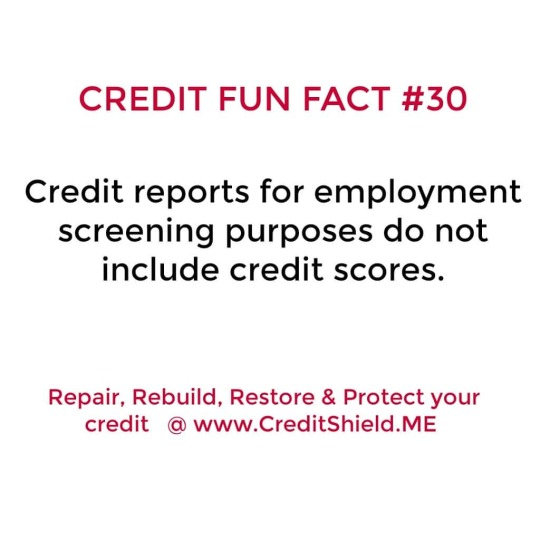#employmentfirst
Explore tagged Tumblr posts
Photo

credit reports for employment screening purposes do not include credit scores. . Repair, Rebuild, Restore & Protect your credit @ www.CreditShield.ME . . . . . . #employment #employmentservices #employmentopportunity #employmentopportunities #employmentforall #employmentagency #employmentfair #employmentlaw #employmentchallenge #employmentsolutions #employmentrecruitment #employmentspecialist #employmentoffice #jobs #employmentadvice #jobseekers #employmentlawyers #employmentfirst #jobfair #employment_fair #employmentverification #jobinterview #jobsearch #recruitment #jobopportunity #employments #careerservice #careersday #careerswitch #jobhunting https://www.instagram.com/p/CErsqizHb5e/?igshid=15uf9xr4jtu8d
#employment#employmentservices#employmentopportunity#employmentopportunities#employmentforall#employmentagency#employmentfair#employmentlaw#employmentchallenge#employmentsolutions#employmentrecruitment#employmentspecialist#employmentoffice#jobs#employmentadvice#jobseekers#employmentlawyers#employmentfirst#jobfair#employment_fair#employmentverification#jobinterview#jobsearch#recruitment#jobopportunity#employments#careerservice#careersday#careerswitch#jobhunting
0 notes
Text
Certified Employment Support Professional (CESP) Exam
On November 16, from 9:00 a.m. to 12:00 noon, the Association of People Supporting Employment First (APSE) will offer an exam session in Nashville. The exam will be offered at the UT Extension Office, 5201 Marchant Drive Nashville TN, 37211. Applications must be received before November 6, and applicants have the option to mail or fax the registration fee to the CESP Exam Application APSE Office located at 416 Hungerford Drive, Suite 418 Rockville, MD 20850. For questions, please contact Aaron Robbins Wiseman, CESP Certification Director at [email protected] or 301-279-0060. The application can be found at this link.
0 notes
Text
Wins for Employment!
As you may know, RespectAbility works hard to connect with decision-makers and other influential people to broaden their perspective of people with disabilities. We want PwDs to be included in the policies they make and to benefit as a potentially large, 56 million, voter block.
We have had one-on-one meetings with 32 governors! Some of our efforts are coming into fruition. We've seen massive changes in Wisconsin, Mississippi, Delaware, North Dakota, and Iowa. Now Ohio and Washington are joining the trend:
State Helps Developmentally Disabled Gain Jobs
Governor Signs Vulnerable Individuals Priority Act
Your state could be next! We encourage you to help out by sending your governor a letter, asking for a meeting or rallying the disability community in your home state.
1 note
·
View note
Photo

Repair, Rebuild, Restore & Protect your credit @ www.CreditShield.ME . . . . . . #employment #employmentservices #employmentopportunity #employmentopportunities #employmentforall #employmentagency #employmentfair #employmentlaw #employmentchallenge #employmentsolutions #employmentrecruitment #employmentspecialist #employmentoffice #jobs #employmentadvice #jobseekers #employmentlawyers #employmentfirst #jobfair #employment_fair #employmentverification #jobinterview #jobsearch #recruitment #jobopportunity #employments #careerservice #careersday #careerswitch #jobhunting https://www.instagram.com/p/CErr5PhHok-/?igshid=mt7xl2ufjqwz
#employment#employmentservices#employmentopportunity#employmentopportunities#employmentforall#employmentagency#employmentfair#employmentlaw#employmentchallenge#employmentsolutions#employmentrecruitment#employmentspecialist#employmentoffice#jobs#employmentadvice#jobseekers#employmentlawyers#employmentfirst#jobfair#employment_fair#employmentverification#jobinterview#jobsearch#recruitment#jobopportunity#employments#careerservice#careersday#careerswitch#jobhunting
0 notes
Photo

Usage of credit histories in employment screenings has increased from 19% in 1996 to 42% in 2006. . Repair, Rebuild, Restore & Protect your credit @ www.CreditShield.ME . . . . . . #employment #employmentservices #employmentopportunity #employmentopportunities #employmentforall #employmentagency #employmentfair #employmentlaw #employmentchallenge #employmentsolutions #employmentrecruitment #employmentspecialist #employmentoffice #jobs #employmentadvice #jobseekers #employmentlawyers #employmentfirst #jobfair #employment_fair #employmentverification #jobinterview #jobsearch #recruitment #jobopportunity #employments #careerservice #careersday #careerswitch #jobhunting https://www.instagram.com/p/CErq9CfHj0_/?igshid=d3gn3j7o6bwf
#employment#employmentservices#employmentopportunity#employmentopportunities#employmentforall#employmentagency#employmentfair#employmentlaw#employmentchallenge#employmentsolutions#employmentrecruitment#employmentspecialist#employmentoffice#jobs#employmentadvice#jobseekers#employmentlawyers#employmentfirst#jobfair#employment_fair#employmentverification#jobinterview#jobsearch#recruitment#jobopportunity#employments#careerservice#careersday#careerswitch#jobhunting
0 notes